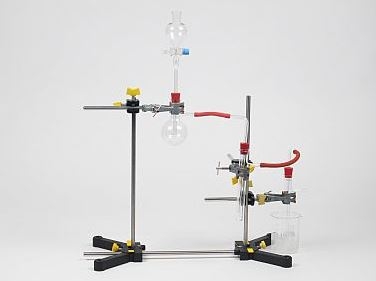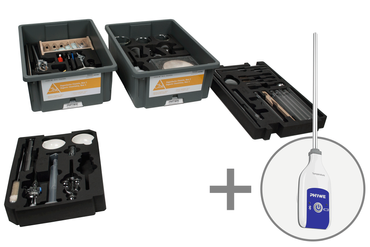The cracking process which occurs on the surface of the activated carbon is more complicated than shown by the equation above. Carbon and hydrogen are also formed. The catalysts which are nowadays used technically (Al/Si oxides) allow a good control of the reaction and even a specific choice of products. Branched and aromatic hydrocarbons can also be produced.
This experimentally quite ambitious test relates back to the "Characterization of ethylene" (P7171000), which must therefore be carried out prior to this experiment.
Learning objectives
- Higher boiling alkanes can be split to lower boiling hydrocarbons by catalytic cracking.
- The products which result from this process are alkenes and alkanes.
Benefits
- Easy teaching and efficient learning by using interactive experimentation PHYWE-Software
- Experiment is part of a complete solution set with experiments for the topic Organic Chemistry matched with international curriculum: all topics are covered



